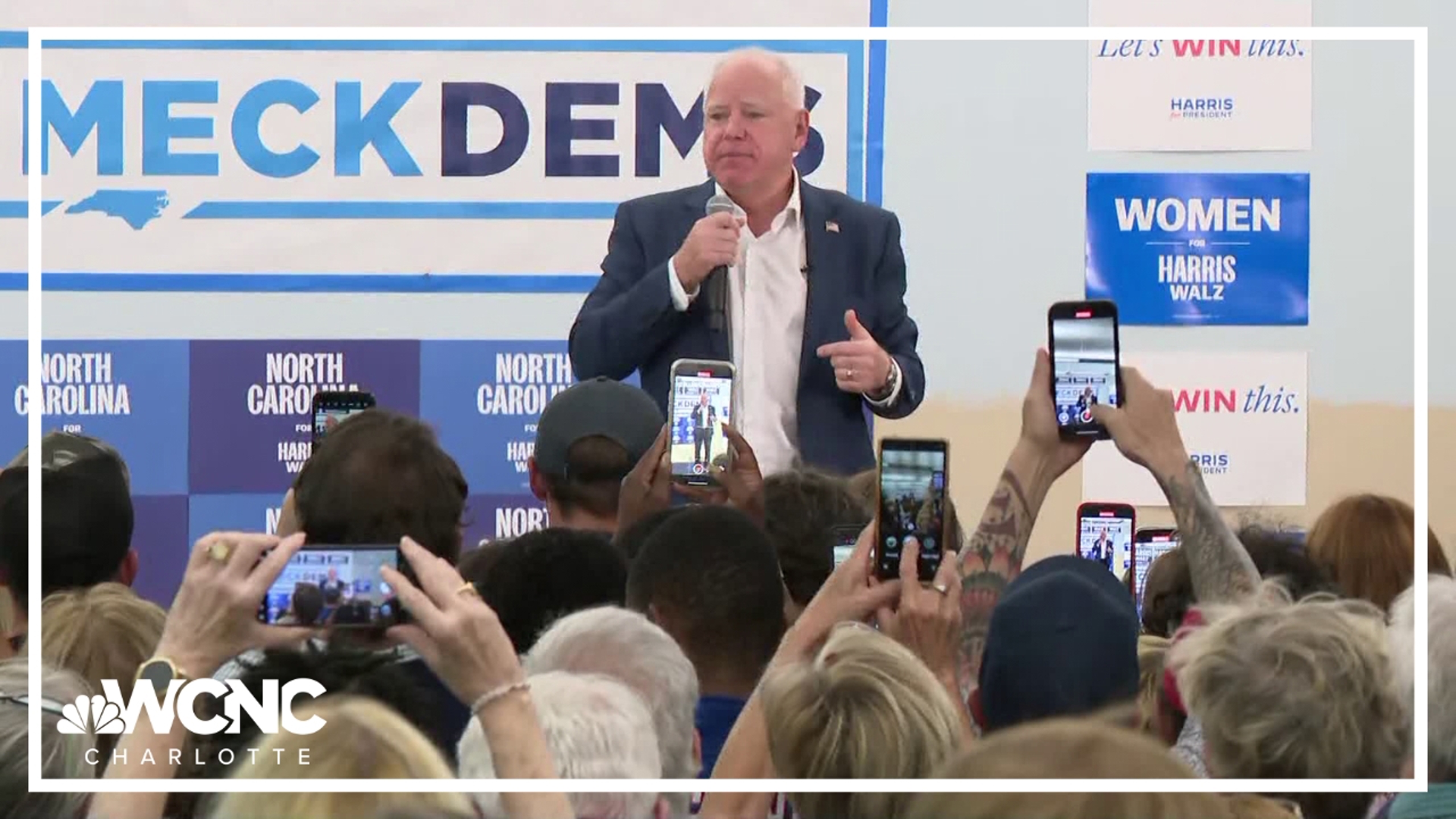CHARLOTTE, N.C. — Democratic vice presidential nominee Tim Walz was in Charlotte Wednesday encouraging supporters to vote early ahead of next week's presidential election.
Walz spoke at the Mecklenburg County Democratic Party headquarters Wednesday afternoon. He campaigned in south Charlotte and Matthews to reach voters before the end of early voting on Saturday.
"We've made our case," Walz said. "As Barack Obama said when I was with him, 'Don't boo, vote.'"
Walz is also scheduled to stop in Asheville and Greensboro during Wednesday's trip to North Carolina. It comes as his running mate, Vice President Kamala Harris, appears in Raleigh, according to the WRAL. Harris is also scheduled to hold a rally in Charlotte on Saturday, marking the final day of early voting in North Carolina.
Both visits come on the heels of Harris and former President Donald Trump each giving their "closing arguments" speeches in the past few days. Trump's speech was Sunday in New York, while Harris addressed supporters in Washington on Tuesday.
Trump was also in North Carolina for a campaign rally in Rocky Mount. His running mate, JD Vance, has made numerous trips to North Carolina in recent weeks. He was last in Monroe on Friday, where he held a town hall with Republican voters.
Both campaigns have put an emphasis on five battleground states as we hit the home stretch: Arizona, Georgia, North Carolina, Pennsylvania and Wisconsin. Trump also has rallies scheduled in Nevada and Virginia through Saturday. Former presidential candidate Vivek Ramaswamy is also speaking at an event at the Trump 47 Office on Central Avenue in Charlotte at 6 p.m.
A WRAL News poll released Tuesday shows both Vice President Kamala Harris and Trump tied with 47% of the vote among likely voters. It also shows 4% are undecided, and 2% are likely to go for a third-party candidate.
The State Board of Elections announced Tuesday that more than 3.1 million ballots had been cast. This is slightly behind 2020, which was at around 3.4 million ballots by this point. However, experts emphasize it's hard to compare these years, given the amount of mail-in ballots due to the COVID-19 pandemic. Both are far ahead of 2016's 1.8 million ballots cast by this point.
Early voting began on Oct. 17 and lasts until Nov. 2.

